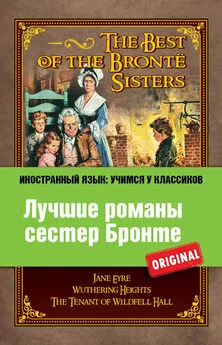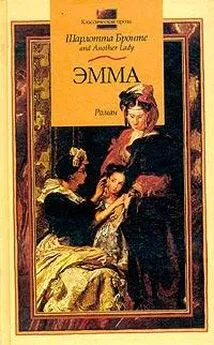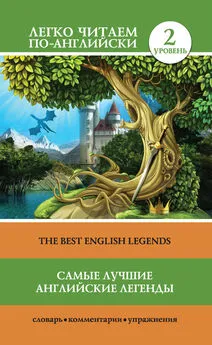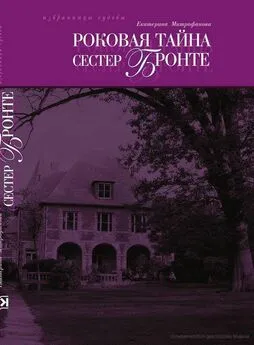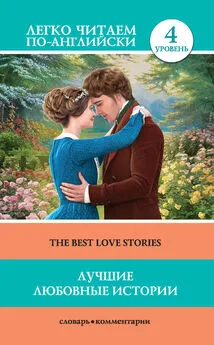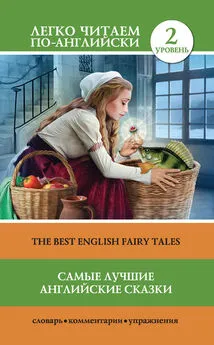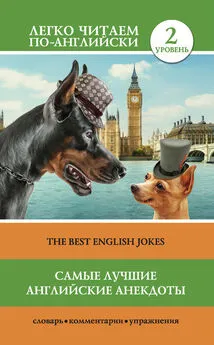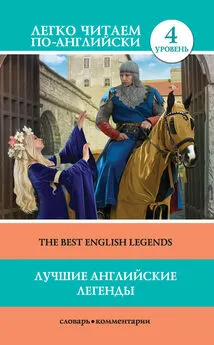Шарлотта Бронте - Лучшие романы сестер Бронте / The best of the Brontë sisters
- Название:Лучшие романы сестер Бронте / The best of the Brontë sisters
- Автор:
- Жанр:
- Издательство:Литагент «Эксмо»334eb225-f845-102a-9d2a-1f07c3bd69d8
- Год:2013
- Город:Москва
- ISBN:978-5-699-61892-7
- Рейтинг:
- Избранное:Добавить в избранное
-
Отзывы:
-
Ваша оценка:
Шарлотта Бронте - Лучшие романы сестер Бронте / The best of the Brontë sisters краткое содержание
«Иностранный язык: учимся у классиков» – это только оригинальные тексты лучших произведений мировой литературы. Эти книги станут эффективным и увлекательным пособием для изучающих иностранный язык на хорошем «продолжающем» и «продвинутом» уровне. Они помогут эффективно расширить словарный запас, подскажут, где и как правильно употреблять устойчивые выражения и грамматические конструкции, просто подарят радость от чтения. В конце книги дана краткая информация о культуроведческих, страноведческих, исторических и географических реалиях описываемого периода, которая поможет лучше ориентироваться в тексте произведения.
Серия «Иностранный язык: учимся у классиков» адресована широкому кругу читателей, хорошо владеющих английским языком и стремящихся к его совершенствованию.
Лучшие романы сестер Бронте / The best of the Brontë sisters - читать онлайн бесплатно ознакомительный отрывок
Интервал:
Закладка:
‘So then,’ thought I, ‘he despises me, because he knows I love him.’
And the reflection made me so miserable I knew not what to do. Milicent came and began to admire my drawings, and make remarks upon them; but I could not talk to her – I could talk to no one, and, upon the introduction of tea, I took advantage of the open door and the slight diversion caused by its entrance to slip out – for I was sure I could not take any – and take refuge in the library. My aunt sent Thomas in quest of me, to ask if I were not coming to tea; but I bade him say I should not take any to-night, and, happily, she was too much occupied with her guests to make any further inquiries at the time.
As most of the company had travelled far that day, they retired early to rest; and having heard them all, as I thought, go up-stairs, I ventured out, to get my candlestick from the drawing-room sideboard. But Mr. Huntingdon had lingered behind the rest. He was just at the foot of the stairs when I opened the door, and hearing my step in the hall – though I could hardly hear it myself – he instantly turned back.
‘Helen, is that you?’ said he. ‘Why did you run away from us?’
‘Good-night, Mr. Huntingdon,’ said I, coldly, not choosing to answer the question. And I turned away to enter the drawing-room.
‘But you’ll shake hands, won’t you?’ said he, placing himself in the doorway before me. And he seized my hand and held it, much against my will.
‘Let me go, Mr. Huntingdon,’ said I. ‘I want to get a candle.’
‘The candle will keep,’ returned he.
I made a desperate effort to free my hand from his grasp.
‘Why are you in such a hurry to leave me, Helen?’ he said, with a smile of the most provoking self-sufficiency. ‘You don’t hate me, you know.’
‘Yes, I do – at this moment.’
‘Not you. It is Annabella Wilmot you hate, not me.’
‘I have nothing to do with Annabella Wilmot,’ said I, burning with indignation.
‘But I have, you know,’ returned he, with peculiar emphasis.
‘That is nothing to me, sir,’ I retorted.
‘Is it nothing to you, Helen? Will you swear it? Will you?’
‘No I won’t, Mr. Huntingdon! and I will go,’ cried I, not knowing whether to laugh, or to cry, or to break out into a tempest of fury.
‘Go, then, you vixen!’ he said; but the instant he released my hand he had the audacity to put his arm round my neck, and kiss me.
Trembling with anger and agitation, and I don’t know what besides, I broke away, and got my candle, and rushed up-stairs to my room. He would not have done so but for that hateful picture. And there he had it still in his possession, an eternal monument to his pride and my humiliation.
It was but little sleep I got that night, and in the morning I rose perplexed and troubled with the thoughts of meeting him at breakfast. I knew not how it was to be done. An assumption of dignified, cold indifference would hardly do, after what he knew of my devotion – to his face, at least. Yet something must be done to check his presumption – I would not submit to be tyrannised over by those bright, laughing eyes. And, accordingly, I received his cheerful morning salutation as calmly and coldly as my aunt could have wished, and defeated with brief answers his one or two attempts to draw me into conversation, while I comported myself with unusual cheerfulness and complaisance towards every other member of the party, especially Annabella Wilmot, and even her uncle and Mr. Boarham were treated with an extra amount of civility on the occasion, not from any motives of coquetry, but just to show him that my particular coolness and reserve arose from no general ill-humour or depression of spirits.
He was not, however, to be repelled by such acting as this. He did not talk much to me, but when he did speak it was with a degree of freedom and openness, and kindliness too, that plainly seemed to intimate he knew his words were music to my ears; and when his looks met mine it was with a smile – presumptuous, it might be – but oh! so sweet, so bright, so genial, that I could not possibly retain my anger; every vestige of displeasure soon melted away beneath it like morning clouds before the summer sun.
Soon after breakfast all the gentlemen save one, with boyish eagerness, set out on their expedition against the hapless partridges; my uncle and Mr. Wilmot on their shooting ponies, Mr. Huntingdon and Lord Lowborough on their legs: the one exception being Mr. Boarham, who, in consideration of the rain that had fallen during the night, thought it prudent to remain behind a little and join them in a while when the sun had dried the grass. And he favoured us all with a long and minute disquisition upon the evils and dangers attendant upon damp feet, delivered with the most imperturbable gravity, amid the jeers and laughter of Mr. Huntingdon and my uncle, who, leaving the prudent sportsman to entertain the ladies with his medical discussions, sallied forth with their guns, bending their steps to the stables first, to have a look at the horses and let out the dogs.
Not desirous of sharing Mr. Boarham’s company for the whole of the morning, I betook myself to the library, and there brought forth my easel and began to paint. The easel and the painting apparatus would serve as an excuse for abandoning the drawing-room if my aunt should come to complain of the desertion, and besides I wanted to finish the picture. It was one I had taken great pains with, and I intended it to be my masterpiece, though it was somewhat presumptuous in the design. By the bright azure of the sky, and by the warm and brilliant lights and deep long shadows, I had endeavoured to convey the idea of a sunny morning. I had ventured to give more of the bright verdure of spring or early summer to the grass and foliage than is commonly attempted in painting. The scene represented was an open glade in a wood. A group of dark Scotch firs was introduced in the middle distance to relieve the prevailing freshness of the rest; but in the foreground was part of the gnarled trunk and of the spreading boughs of a large forest-tree, whose foliage was of a brilliant golden green – not golden from autumnal mellowness, but from the sunshine and the very immaturity of the scarce expanded leaves. Upon this bough, that stood out in bold relief against the sombre firs, were seated an amorous pair of turtle doves, whose soft sad-coloured plumage afforded a contrast of another nature; and beneath it a young girl was kneeling on the daisy-spangled turf, with head thrown back and masses of fair hair falling on her shoulders, her hands clasped, lips parted, and eyes intently gazing upward in pleased yet earnest contemplation of those feathered lovers – too deeply absorbed in each other to notice her.
I had scarcely settled to my work, which, however, wanted but a few touches to the finishing, when the sportsmen passed the window on their return from the stables. It was partly open, and Mr. Huntingdon must have seen me as he went by, for in half a minute he came back, and setting his gun against the wall, threw up the sash and sprang in, and set himself before my picture.
‘Very pretty, i’faith,’ said he, after attentively regarding it for a few seconds; ‘and a very fitting study for a young lady. Spring just opening into summer – morning just approaching noon – girlhood just ripening into womanhood, and hope just verging on fruition. She’s a sweet creature! but why didn’t you make her black hair?’
‘I thought light hair would suit her better. You see I have made her blue-eyed and plump, and fair and rosy.’
‘Upon my word – a very Hebe! [187]I should fall in love with her if I hadn’t the artist before me. Sweet innocent! she’s thinking there will come a time when she will be wooed and won like that pretty hen-dove by as fond and fervent a lover; and she’s thinking how pleasant it will be, and how tender and faithful he will find her.’
‘And perhaps,’ suggested I, ‘how tender and faithful she shall find him.’
‘Perhaps, for there is no limit to the wild extravagance of Hope’s imaginings at such an age.’
‘Do you call that, then, one of her wild, extravagant delusions?’
‘No; my heart tells me it is not. I might have thought so once, but now, I say, give me the girl I love, and I will swear eternal constancy to her and her alone, through summer and winter, through youth and age, and life and death! if age and death must come.’
He spoke this in such serious earnest that my heart bounded with delight; but the minute after he changed his tone, and asked, with a significant smile, if I had ‘any more portraits.’
‘No,’ replied I, reddening with confusion and wrath.
But my portfolio was on the table: he took it up, and coolly sat down to examine its contents.
‘Mr. Huntingdon, those are my unfinished sketches,’ cried I, ‘and I never let any one see them.’
And I placed my hand on the portfolio to wrest it from him, but he maintained his hold, assuring me that he ‘liked unfinished sketches of all things.’
‘But I hate them to be seen,’ returned I. ‘I can’t let you have it, indeed!’
‘Let me have its bowels then,’ said he; and just as I wrenched the portfolio from his hand, he deftly abstracted the greater part of its contents, and after turning them over a moment he cried out, – ‘Bless my stars, here’s another;’ and slipped a small oval of ivory paper into his waistcoat pocket – a complete miniature portrait that I had sketched with such tolerable success as to be induced to colour it with great pains and care. But I was determined he should not keep it.
‘Mr. Huntingdon,’ cried I, ‘I insist upon having that back! It is mine, and you have no right to take it. Give it me directly – I’ll never forgive you if you don’t!’
But the more vehemently I insisted, the more he aggravated my distress by his insulting, gleeful laugh. At length, however, he restored it to me, saying, – ‘Well, well, since you value it so much, I’ll not deprive you of it.’
To show him how I valued it, I tore it in two and threw it into the fire. He was not prepared for this. His merriment suddenly ceasing, he stared in mute amazement at the consuming treasure; and then, with a careless ‘Humph! I’ll go and shoot now,’ he turned on his heel and vacated the apartment by the window as he came, and setting on his hat with an air, took up his gun and walked away, whistling as he went – and leaving me not too much agitated to finish my picture, for I was glad, at the moment, that I had vexed him.
When I returned to the drawing-room, I found Mr. Boarham had ventured to follow his comrades to the field; and shortly after lunch, to which they did not think of returning, I volunteered to accompany the ladies in a walk, and show Annabella and Milicent the beauties of the country. We took a long ramble, and re-entered the park just as the sportsmen were returning from their expedition. Toil-spent and travel-stained, the main body of them crossed over the grass to avoid us, but Mr. Huntingdon, all spattered and splashed as he was, and stained with the blood of his prey – to the no small offence of my aunt’s strict sense of propriety – came out of his way to meet us, with cheerful smiles and words for all but me, and placing himself between Annabella Wilmot and myself, walked up the road and began to relate the various exploits and disasters of the day, in a manner that would have convulsed me with laughter if I had been on good terms with him; but he addressed himself entirely to Annabella, and I, of course, left all the laughter and all the badinage to her, and affecting the utmost indifference to whatever passed between them, walked along a few paces apart, and looking every way but theirs, while my aunt and Milicent went before, linked arm in arm and gravely discoursing together. At length Mr. Huntingdon turned to me, and addressing me in a confidential whisper, said, – ‘Helen, why did you burn my picture?’
Читать дальшеИнтервал:
Закладка:
